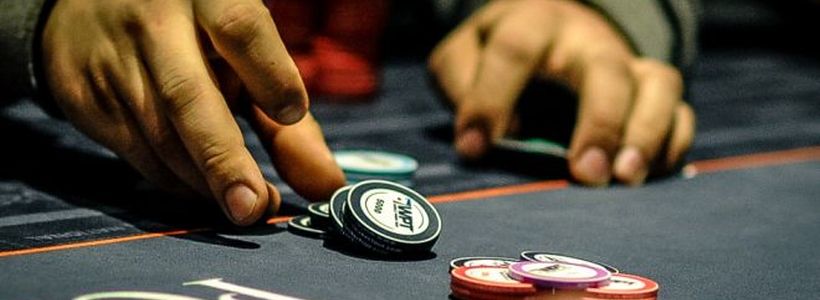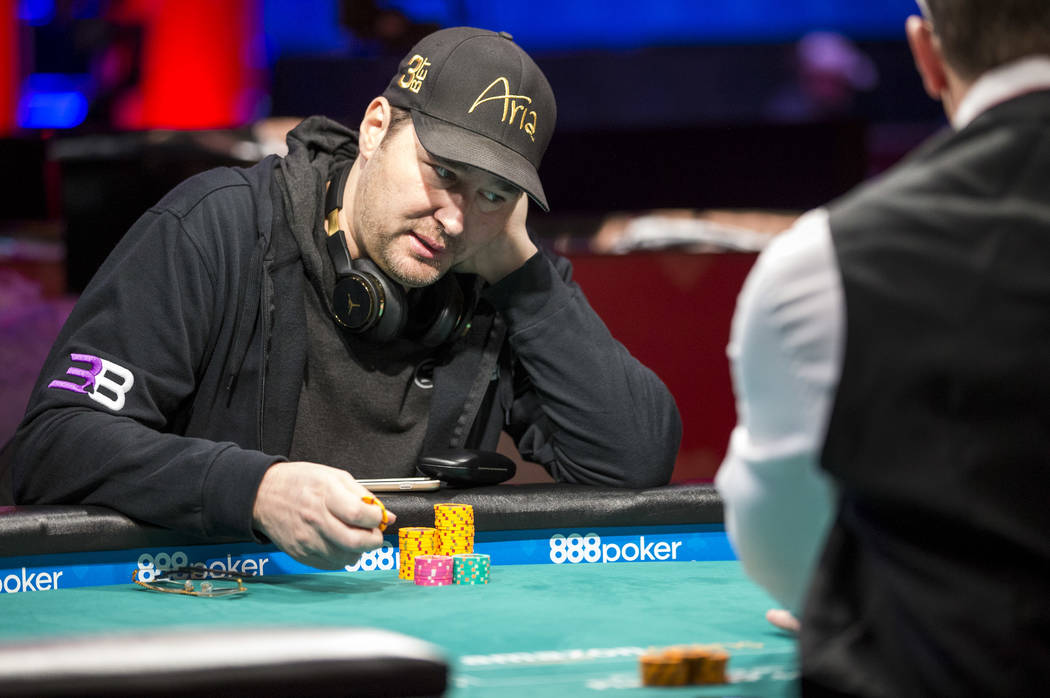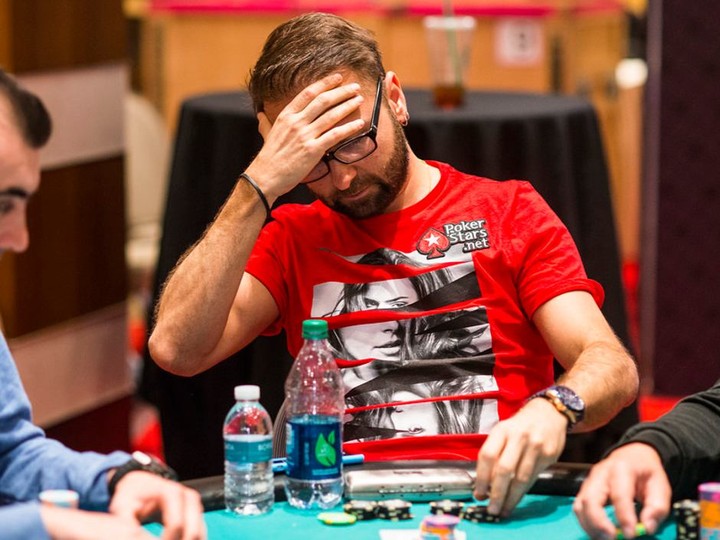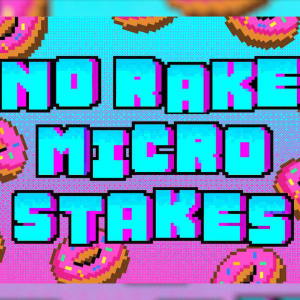
On the surface, hold'em doesn't seem to be all that complicated. During each betting round, you're only allowed to take one of three different actions: bet, check/call or fold. How hard choosing one of three different options could be? On top of that, there's the Dunning-Kruger effect making poker players who just learned the rules and won their first few pots think that they know everything that there's to know about poker.
However, once a player realizes the importance of looking at his or her game in the long run perspective, they are almost immediately overwhelmed by the sheer complexity of poker. First of all, the game is played with a deck that can be arranged in a number of different ways that's higher than the number of particles in the known universe. Second of all, only a very small percentage of players can actually make money playing poker and in order to do so, they have to fight tooth and nail for the smallest of edges.
Once you're aware of this crazy environment, making a choice between checking or betting with top pair on the river in some spot is no longer a matter of 'losing some value' - it's a matter of survival. The EV of each and every bet you make is extremely important to your overall success and therein lies the problem. Unless you're a genius math-wiz, who's crushing mid stakes, is intimately familiar with millions of hands in his or her database and does EV calculations 'for fun' away from the tables, you probably have a very limited idea of the exact EV that your actions have. The good news is that you're not alone in this. Even players with thousands if not millions in poker winnings often have to settle for what's essentially an 'educated guess' when it comes to evaluating the EV of their actions at the table.
At the end of the day, we're just humans and unless you're one of the few outliers, you have to content with the limited tools that you have at your disposal. Calculating the EV of your bet on the fly is unrealistic and that's why we came up with the alternative approach of justifying our bets, based on few different arbitrary reasons, no matter if you play live poker or real money poker sites.
Objective Reason For Betting
As we've already stated, objectively, there's only one reason for betting and that's expected value. If making a bet with a certain sizing has a higher EV than all the other options - you should make that bet. Our limited ability to figure out the exact EV of our bets on the fly is the reason why we're forced to use certain mental shortcuts in order to make our decision-making processes easier to both understand and implement.
This practice isn't exclusive for poker. Let's use an example. The main purpose of nutrition is to keep us healthy and extend our lifespan. There's a ton of research on the subject of nutrition and you can really go deep on the issue, but at the end of the day all that sophisticated knowledge won't really allow you to come up with the 'optimal diet'. With all that depth of knowledge, we don't have the 'GTO diet' yet.
That's why a few fairly simple guidelines like, "avoid processed food", "eat lots of vegetables", "mind the calories" etc. are often enough to come up with a 'winning' solution. Furthermore, the more experienced you get the better you become at using these simple guidelines. Poker is very similar in that regard. You can spend hours with a piece of paper and/or various pieces of poker software, calculating the EV of certain spots and it will help you become a better poker player, but once you take a seat at a poker table you're forced to make educated guesses like every other schmuck.

Main Reasons For Betting
If you're not absolutely new to poker, you've probably heard about the basic dichotomy that poker players use to justify their betting decisions. In any given hand, we're either betting for value or as a bluff. You might have heard about a bunch of other reasons for betting like protecting your hand, gaining initiative or gaining information and we'll talk about them later in this article, but the basic distinction between a value bet and a bluff is every poker player's bread and butter.
Seeing as poker is largely a game of mistakes, we came up with the simplest way of exploiting that fact. If you make a successful value bet or a bluff you're essentially causing your opponent to make a mistake. It sounds very simple in principle but it takes years to perfect your value and bluffing game.

Value
Value betting occurs when you're making a bet with the intention of getting called by a range that you have more than 50% equity against. Of course, in reality, you never know exactly what your equity against the opponent's range is, and the ability to estimate that equity is precisely what separates good poker players from bad ones. Let's take a look at few examples:
- You're holding 7c7d as an aggressor on a Ac7h3d board. This is a fairly easy spot for a value cbet. You should have more way more than 50% equity against virtually every sensible calling range, no matter if you're playing against a seasoned regular or a recreational player.
- You flopped top pair with good kicker holding KhQh on a Qd9h6d. There are plenty of draws on the board like JT, 78, XdXd, you can also get called by tons of pairs with and without backdoor equity (QJ, QT, Q8s, J9, T9, 98, 97s, JJ, TT). Of course there are also some hands out there that are crushing you equity wise like top pair top kicker and sets, but on the whole, most players should have way more hands worse than KQ in their calling range. This is still a fairly easy value bet against most opponents.
- Lastly, let's look at a river spot where you're holding QsTs on a As3hTd9h5s board. The flop went check/check, you got one street of value on the turn and now you're about to decide if it's a good idea to bet for value on the river. Your average regular most likely doesn't have enough worse hands in his or her calling range to justify a value bet but a recreational player that's loose and passive enough might. The spot feels dangerously close to that 50% equity threshold and that makes it extremely important. Betting when you're just above that 50% equity vs. calling range line is called "thin value betting" and it's just about the most important tool in your arsenal if your aim is to beat micro stakes. Everybody knows how to value bet their set on a dry board, but deciding if it's worth it to push for more value with a second pair good kicker on the river, is what separates most micro stakes winners from losers and break-even players.

Bluff
The simplicity of the value bet definition provided above makes it very easy to figure out what bluffing is all about. If you don't think that you have that aforementioned 50% or more equity vs villain's calling range, but you feel like you can make him fold often enough to still make a profit - you should bluff. How often is often enough? That's easy, you just have to employ some basic poker math. If you bet 1$ into 2$ you only have to be right about 33% of the time (a bit more if you count the rake - as you should!) for you to break even. This stems from a very basic EV calculation: (0.33 * 2$) + (0.66 * 1$) = 0, which can be looked at as the percentage of your wins times the amount that you stand to win plus the percentage of losses times the amount that you stand to lose. With that out of the way, let's take a look at a few examples:
- You open raised 76s in CO and you got called by the button. The board comes Ac8d2s. While there are tons of hands in the villain's range that are better than yours (including extremely marginal holdings like 9-high) you can make a huge number of them fold with a relatively small cbet, which makes it a great spot for a standard cbet bluff.
- In this situation, you're holding 9h8h on a Qh8sJc3hAd. You decided to double barrel both flop and turn with your draw that bricked on the last street. However, it might still be a good idea to bluff the river. You obviously don't have enough equity vs. calling range to value bet but the board is now very scary for Qx and Jx type hands which you can exploit by continuing the aggression.
- Lastly, let's briefly talk about something called a semi-bluff. We've already mentioned that thin value betting is a situation where you're only slightly above that 50% equity line necessary for a +EV play. Semi-bluffing is to bluffing what thin-value betting is to value betting. When you're holding a solid draw like JhTh on a 9s8c3h, you don't exactly have enough equity to value bet against made hands but you have so many outs that your equity isn't far below that 50% line. If we take this concept a bit further, we can quickly realize that your bluffs almost always have 'some' amount of equity and it pays to construct your bluffing ranges in a way that takes this fact into consideration. For example, you might not want to cbet bluff with 8h5h on a KcTd4s board, but if you switch that Kc for a Kh then all of a sudden you might want to approach the spot differently.

Auxiliary Reasons For Betting
With the big two out of the way let's talk a bit about a few other reasons for betting, that you might have come across while reading some poker literature or watching a poker-themed Hollywood movie. You might have heard about betting for protection or information, betting to gain the initiative or even something fancy like betting for the 'metagame reasons'. You can largely disregard all of them as they aren't really reasons for betting but rather consequences of betting. This doesn't make them entirely useless, as they can help you conceptualize what actually happens when you decide to make your bet but using them as a justification, can quickly become dangerous or, worse yet, -EV.
'Information' has to be the all-time favorite 'reason' for betting in the eyes of Hollywood writers and directors, as they force the protagonists of their movie to constantly use it as justification. Let's think about what would happen if we assumed that gaining information was reason enough to make a bet at a poker table. One could conclude that it makes sense to raise 22 vs. cbet on an AJ4 board to see if our hand is better than our opponent's, which it obviously doesn't. Same goes for protection, if there are a lot of draws with solid equity out there you don't make a 'protection bet' you make a big value bet because that's actually something you can attempt to quantify with some degree of certainty. How do you know if you've made a good 'protection bet' or an 'information bet'? You don't. How do you know if your value bet was good?

Is It Still OK to Think Like That In 2018?
Poker is evolving at a very rapid rate and it's completely natural that not every concept that used to be highly regarded in the past, will stand the test of time. In order to stay successful at poker, you have to constantly improve your game using more and more sophisticated tools. That being said, there are some cornerstones of poker that will never be obsolete and the value-bluff dichotomy is one of them.
Yes, it's true that, at the core of it, EV is the only real reason to make a certain play in poker and it's true that once we discover the perfect GTO strategy thinking in value-bluff terms will no longer be necessary. It won't be necessary because once GTO becomes the lay of the land, no human being will ever bother playing poker at any competitive level. The robot overlords might be coming for our bankrolls but they haven't arrived yet.

